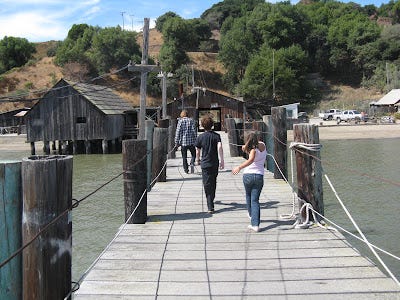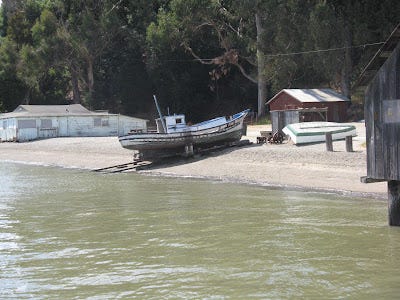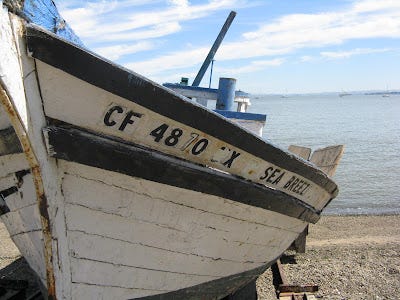One of the early joys of the Internet in the 1990s was the ability to uncover just how closely connected we all are. We previously had no easy way of visualizing how only six degrees of separation were all that separated each of us from presidents, actors, athletes, billionaires and far less savory characters as well.
Online and off, we run across new people all the time, and it’s only natural to wonder how closely we may have been to meeting each other sometime in the past, but didn’t.
Perhaps we passed within a block of each other in some random city years ago -- one of us going one direction, one in another.
We just missed.
The opposite is also true. We may meet someone in some consequential way that sticks in our memory but never encounter them again. We didn’t get to know them and we never will. But that one meeting mattered.
An example for me is a guy currently in the Senate, Chuck Grassley of Iowa, was a 40ish chair of a House agricultural committee when he questioned a 30ish journalist rather harshly half a lifetime ago.
He had an untamed Midwestern twang and probably assumed the reporter was some city slicker from San Francisco who cared only about the environmental issue he termed the "Circle of Poison," and didn’t care about the plight of farmers like those in Grassley’s district.
They sparred over pesticides but the Congressman seemed shocked when the journalist described the plight of the small farmers who were among the primary victims of the multinational agrochemical companies he'd exposed in his book.
That was many years ago now, probably forty. I doubt Grassley even remembers the encounter or knew that the guy he grilled that day was the son of a man who grew up on a very small farm in Canada.
***
A decade after I appeared before Grassley’s committee, the most significant legislative attempt to date to address the issues I testified about was introduced by Sen. Patrick Leahy and it was called “Circle of Poison Prevention Act."
It would have “prohibited the export of pesticides that were not registered for domestic use; were not registered for food use and would not be exported for use on food; or had had the majority of registration canceled.”
The legislation was co-sponsored in the House by Leon Panetta, but it died in committee.
It was a near miss.
HEADLINES:
John Bolton raid shows weaponization of FBI against Patel’s ‘gangsters’ list (Guardian)
The Retribution Phase of Trump’s Presidency Has Begun (New Yorker)
The Gerrymander Race to the Bottom (WSJ)
Justice Department releases transcripts from Ghislaine Maxwell’s interview (CNN)
Hegseth authorizes National Guard to carry weapons in D.C. deployment (WP)
Two Big Signs That ICE Has Way Too Much Money (New York)
Kilmar Abrego García set free after illegal deportation, smuggling charges (WP)
AP analysis shows Texas and California redistricting efforts could mess with rare partisan balance (AP)
Newsom Signs California Redistricting Plan to Counter Texas Republicans (NYT)
The Supreme Court hands down some incomprehensible gobbledygook about canceled federal grants (Vox)
Putin demands Ukraine cede the Donbas region (Reuters)
Famine grips Gaza’s largest city and is likely to spread, authority on food crises says (AP)
Gaza City could be destroyed if Hamas does not agree to terms to end war, Israel's defense minister says (ABC)
Extra illumination from streetlights, store signs and skyscrapers are prompting birds to tweet for nearly an extra hour a day on average, a new study found. (WP)
The AI Doomers Are Getting Doomier (Atlantic)
Police test robot dog for potential UK rollout (BBC)
Bank Fires Workers in Favor of AI Chatbot, Rehires Them After Chatbot Is Terrible at the Job (Gizmodo)
Family Members Locked In Heated Bidding War To Convince Cat To Sleep In Their Bed (The Onion)




